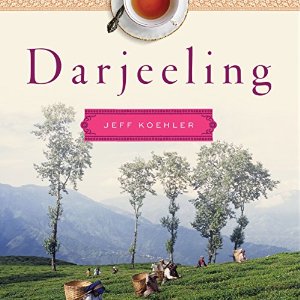 Tea is my favourite beverage since I was resident in southern Asia some decades ago as it was much easier there to find good tea than it was to find even one cup of coffee that was anything but horrible except in the high-end tourist hotels which I generally didn’t frequent. One reason was that they were expensive and the other was that they were prime targets during times of civil unrest such as in Sri Lanka thirty years ago when the capital city of Columbo saw several of the transnational hotel chains were bombed.
Tea is my favourite beverage since I was resident in southern Asia some decades ago as it was much easier there to find good tea than it was to find even one cup of coffee that was anything but horrible except in the high-end tourist hotels which I generally didn’t frequent. One reason was that they were expensive and the other was that they were prime targets during times of civil unrest such as in Sri Lanka thirty years ago when the capital city of Columbo saw several of the transnational hotel chains were bombed.
We’ve excellent tea here as Ingrid, my wife who’s the Estate Buyer, has excellent sources for such varieties as the Darjeeling, Assam and Lapsang Souchon varieties. Good tea brewed properly in an authentic pot is one of the small comforts of life.
So that is my slightly long digression into looking at this history of tea that manages to avoid all the romantic shit about the British Empire and the White Man solely created the popularity of tea to this day., something this superb book doesn’t do.
This most sought after tea, it comes from tea gardens planted in the high elevation in the heart of the Eastern Himalayas, in northern India bordered by Nepal to the west, Bhutan to the east, and the Indian state of Sikkim to the north. Why and how tea came to be harvested here is answered at length in the book, but that’s just one aspect of this fascinating narrative as Koehler deals, as he must, with the larger history of the British Raj and its three hundred and fifty year rule of India. A story that starts with one British agent, a Scottish botanist, smuggling tea plants and their planters out of out of China four hundred and fifty miles to a former Mughal garden in Saharanpur along the Indian foothills of the Himalayas.
So the story of this tea is but a thread with the larger history of the British Empire and its political interests in the region, the tolerated intermarriage of the Brits who went native and married native women, the rise of Hill stations in places like Darjeeling where the British social and political elites decamped to during the abysmal Indian summers, how the Indian soldiers revolt of 1857 changed everything, how tea is grown and processed… Oh get the idea. Even if you don’t like audiobooks but are a devoted tea drinker, get the printed book and read it as it’s something you’ll love!
Fajer Al- Kaisi as narrator is simply phenomenal. He is is an Iraqi Canadian now resident in New York City actor and voice over artist from Montreal. He is fluent in English, French, and Arabic and speaks conversational Spanish and Italian. His talent with bodices is tested here as he boices dozens of characters from both India and Britain giving each of them (presumably) the accent they’d have in their region. He also manages to read what could be a rather dry narrative in a manner that gives it life. Bravo to all involved!
( Audible, 2015)
